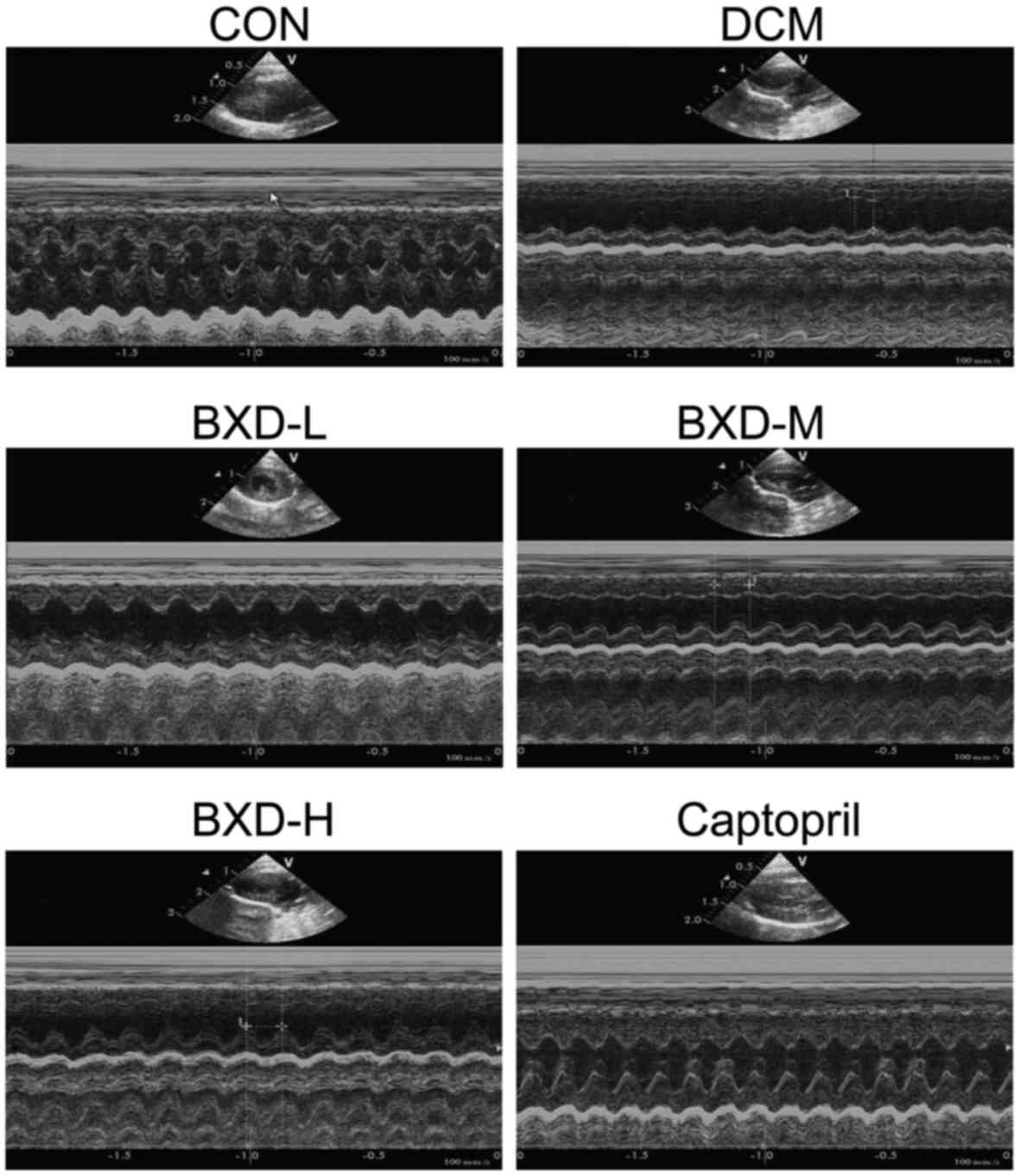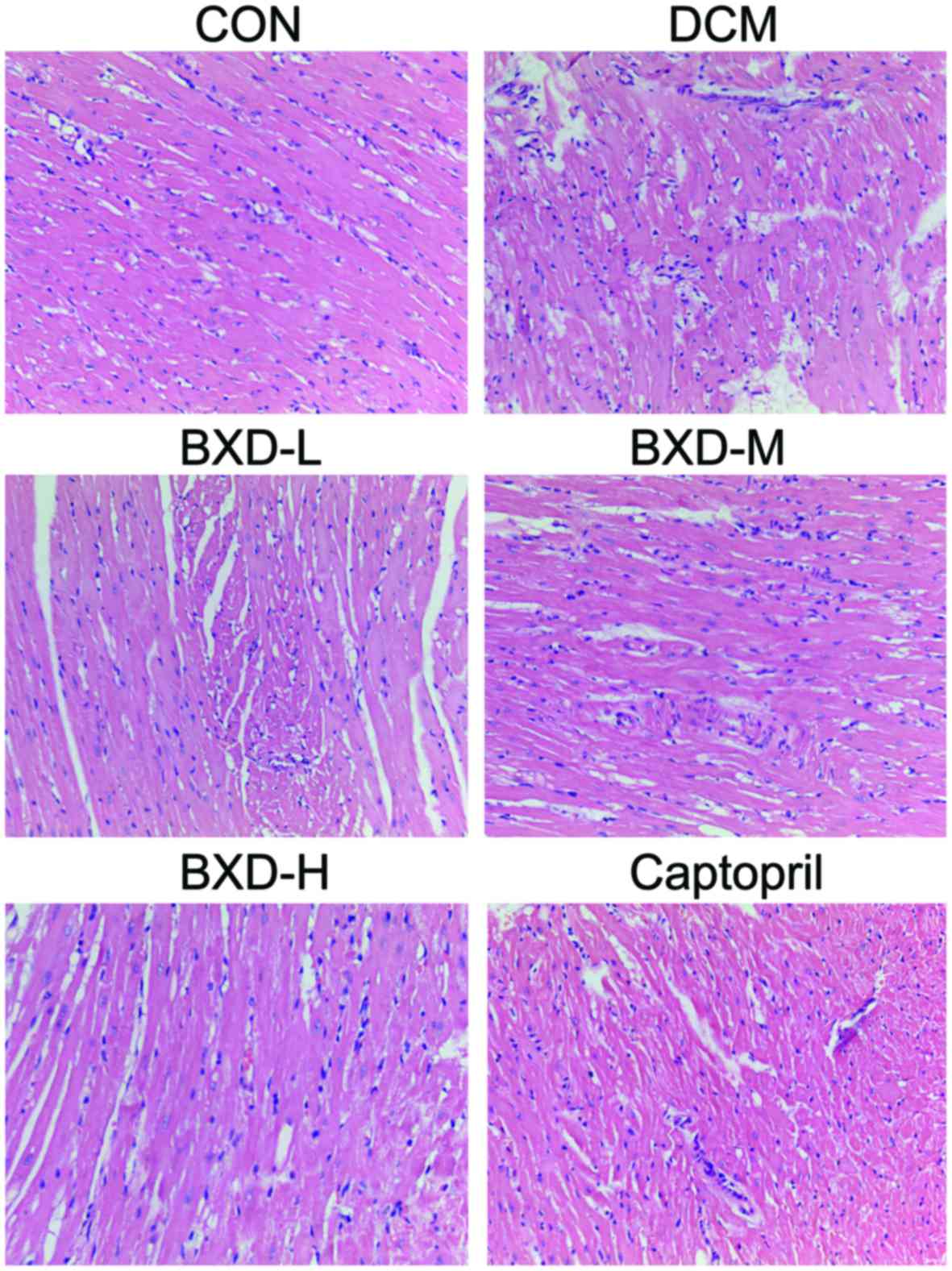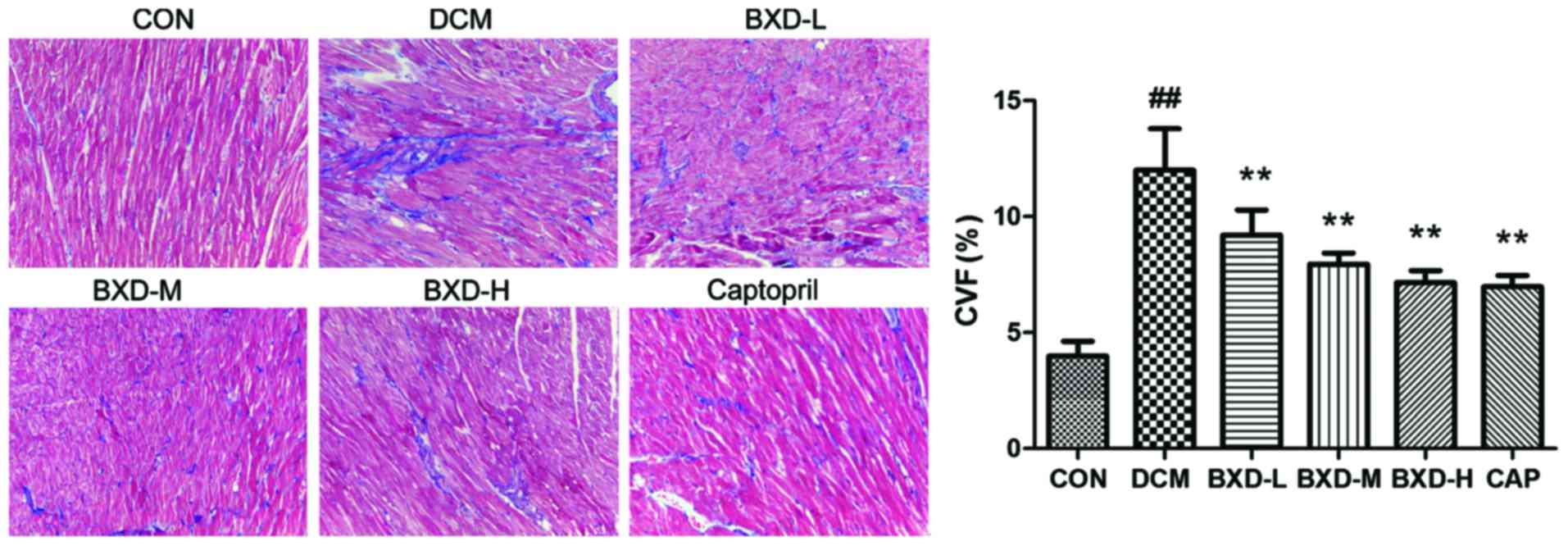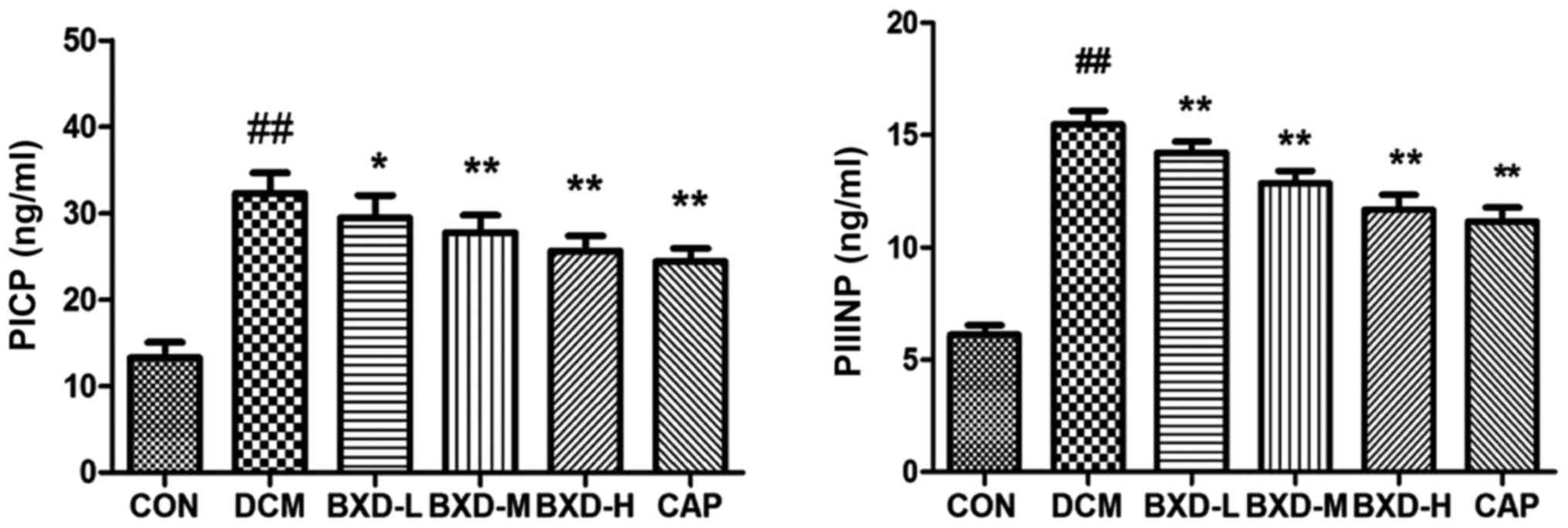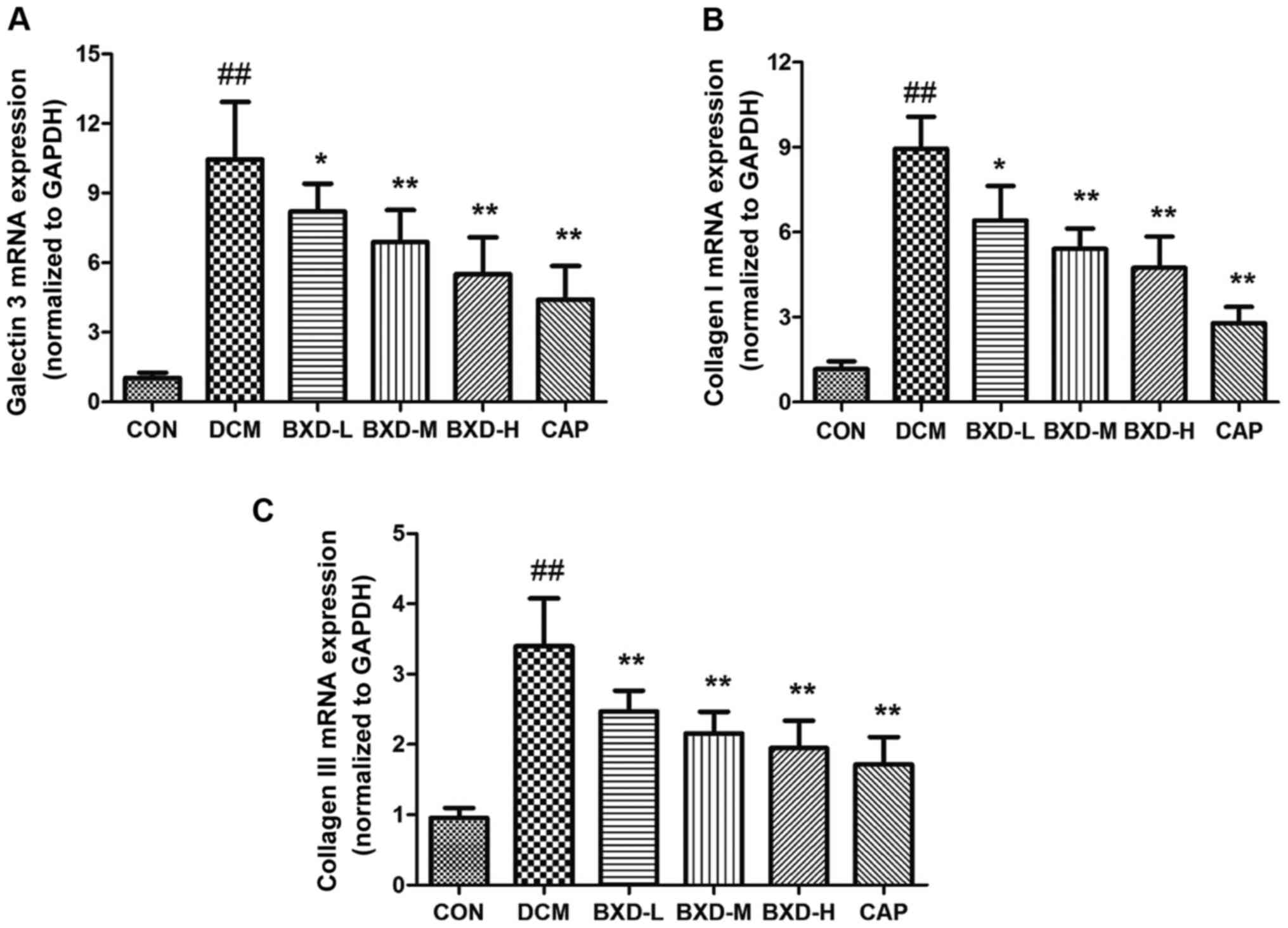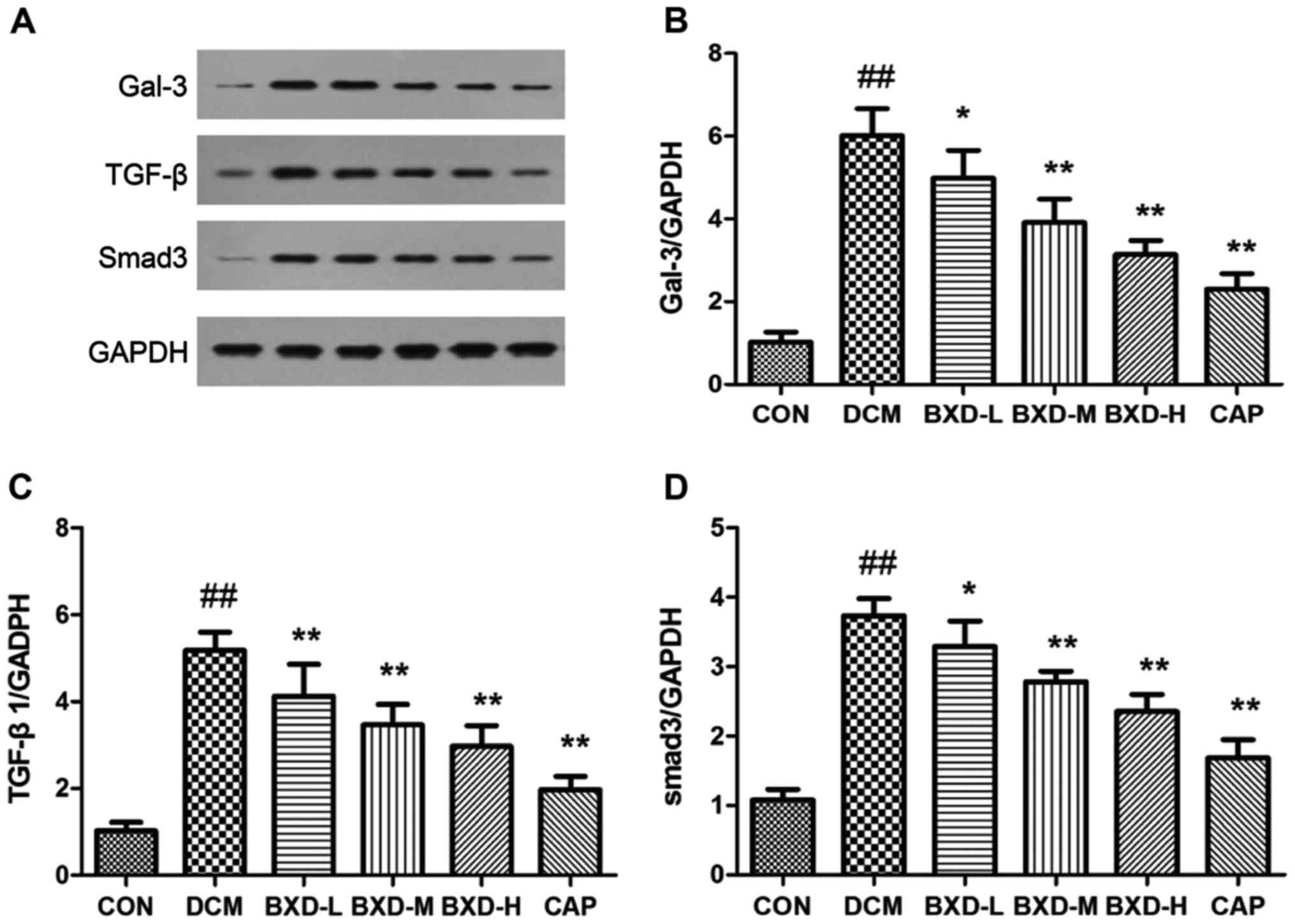|
1
|
Gopal DM and Sam F: New and emerging
biomarkers in left ventricular systolic dysfunction - Insight into
dilated cardiomyopathy. J Cardiovasc Transl Res. 6:516–527. 2013.
View Article : Google Scholar : PubMed/NCBI
|
|
2
|
Towbin JA, Lowe AM, Colan SD, Sleeper LA,
Orav EJ, Clunie S, Messere J, Cox GF, Lurie PR, Hsu D, et al:
Incidence, causes, and outcomes of dilated cardiomyopathy in
children. JAMA. 296:1867–1876. 2006. View Article : Google Scholar : PubMed/NCBI
|
|
3
|
Luk A, Ahn E, Soor GS and Butany J:
Dilated cardiomyopathy: A review. J Clin Pathol. 62:219–225. 2009.
View Article : Google Scholar : PubMed/NCBI
|
|
4
|
Carasso S and Amir O: Reverse remodeling
in dilated cardiomyopathy: Dream come true? Isr Med Assoc J.
16:444–445. 2014.PubMed/NCBI
|
|
5
|
Nicolini G, Pitto L, Kusmic C, Balzan S,
Sabatino L, Iervasi G and Forini F: New insights into mechanisms of
cardioprotection mediated by thyroid hormones. J Thyroid Res.
2013:2643872013. View Article : Google Scholar : PubMed/NCBI
|
|
6
|
Jalil JE, Doering CW, Janicki JS, Pick R,
Shroff SG and Weber KT: Fibrillar collagen and myocardial stiffness
in the intact hypertrophied rat left ventricle. Circ Res.
64:1041–1050. 1989. View Article : Google Scholar : PubMed/NCBI
|
|
7
|
Kong P, Christia P and Frangogiannis NG:
The pathogenesis of cardiac fibrosis. Cell Mol Life Sci.
71:549–574. 2014. View Article : Google Scholar : PubMed/NCBI
|
|
8
|
Graf K and Schaefer-Graf UM: Is Smad3 the
key to inflammation and fibrosis in hypertensive heart disease?
Hypertension. 55:1088–1089. 2010. View Article : Google Scholar : PubMed/NCBI
|
|
9
|
Ferreira AS and Lopes AJ: Chinese medicine
pattern differentiation and its implications for clinical practice.
Chin J Integr Med. 17:818–823. 2011. View Article : Google Scholar : PubMed/NCBI
|
|
10
|
Xiang P, Deng HY, Li K, Huang GY, Chen Y,
Tu L, Ng PC, Pong NH, Zhao H, Zhang L, et al: Dexrazoxane protects
against doxorubicin-induced cardiomyopathy: Upregulation of Akt and
Erk phosphorylation in a rat model. Cancer Chemother Pharmacol.
63:343–349. 2009. View Article : Google Scholar : PubMed/NCBI
|
|
11
|
Shen FF, Jiang TH, Jiang JQ, Lou Y and Hou
XM: Traditional chinese medicine tongxinluo improves cardiac
function of rats with dilated cardiomyopathy. Evid Based Complement
Alternat Med. 2014:3238702014. View Article : Google Scholar : PubMed/NCBI
|
|
12
|
Qin YW, Ye P, He JQ, Sheng L, Wang LY and
Du J: Simvastatin inhibited cardiac hypertrophy and fibrosis in
apolipoprotein E-deficient mice fed a ‘Western-style diet’ by
increasing PPAR α and γ expression and reducing TC, MMP-9, and Cat
S levels. Acta Pharmacol Sin. 31:1350–1358. 2010. View Article : Google Scholar : PubMed/NCBI
|
|
13
|
Feng Y, Xu H and Chen K: Natural Polypill
Xuezhikang: Its clinical benefit and potential
multicomponent synergistic mechanisms of action in cardiovascular
disease and other chronic conditions. J Altern Complement Med.
18:318–328. 2012. View Article : Google Scholar : PubMed/NCBI
|
|
14
|
Hayward R and Hydock DS: Doxorubicin
cardiotoxicity in the rat: an in vivo characterization. J Am Assoc
Lab Anim Sci. 46:20–32. 2007.PubMed/NCBI
|
|
15
|
Schwarz ER, Pollick C, Dow J, Patterson M,
Birnbaum Y and Kloner RA: A small animal model of non-ischemic
cardiomyopathy and its evaluation by transthoracic
echocardiography. Cardiovasc Res. 39:216–223. 1998. View Article : Google Scholar : PubMed/NCBI
|
|
16
|
Barondes SH, Cooper DN, Gitt MA and
Leffler H: Galectins. Structure and function of a large family of
animal lectins. J Biol Chem. 269:20807–20810. 1994.PubMed/NCBI
|
|
17
|
Shah RV and Januzzi JL Jr: Soluble ST2 and
galectin-3 in heart failure. Clin Lab Med. 34:87–97. 2014.
View Article : Google Scholar : PubMed/NCBI
|
|
18
|
Wu AH, Wians F and Jaffe A: Biological
variation of galectin-3 and soluble ST2 for chronic heart failure:
Implication on interpretation of test results. Am Heart J.
165:995–999. 2013. View Article : Google Scholar : PubMed/NCBI
|
|
19
|
Yu L, Ruifrok WP, Meissner M, Bos EM, van
Goor H, Sanjabi B, van der Harst P, Pitt B, Goldstein IJ, Koerts
JA, et al: Genetic and pharmacological inhibition of galectin-3
prevents cardiac remodeling by interfering with myocardial
fibrogenesis. Circ Heart Fail. 6:107–117. 2013. View Article : Google Scholar : PubMed/NCBI
|
|
20
|
Sharma UC, Pokharel S, van Brakel TJ, van
Berlo JH, Cleutjens JP, Schroen B, André S, Crijns HJ, Gabius HJ,
Maessen J, et al: Galectin-3 marks activated macrophages in
failure-prone hypertrophied hearts and contributes to cardiac
dysfunction. Circulation. 110:3121–3128. 2004. View Article : Google Scholar : PubMed/NCBI
|
|
21
|
Lax A, Sanchez-Mas J, Asensio-Lopez MC,
Fernandez-Del Palacio MJ, Caballero L, Garrido IP, Pastor-Perez FJ,
Januzzi JL and Pascual-Figal DA: Mineralocorticoid receptor
antagonists modulate galectin-3 and interleukin-33/ST2 signaling in
left ventricular systolic dysfunction after acute myocardial
infarction. JACC Heart Fail. 3:50–58. 2015. View Article : Google Scholar : PubMed/NCBI
|
|
22
|
Du J, Xie J, Zhang Z, Tsujikawa H, Fusco
D, Silverman D, Liang B and Yue L: TRPM7-mediated Ca2+
signals confer fibrogenesis in human atrial fibrillation. Circ Res.
106:992–1003. 2010. View Article : Google Scholar : PubMed/NCBI
|
|
23
|
Dobaczewski M, Bujak M, Li N,
Gonzalez-Quesada C, Mendoza LH, Wang XF and Frangogiannis NG: Smad3
signaling critically regulates fibroblast phenotype and function in
healing myocardial infarction. Circ Res. 107:418–428. 2010.
View Article : Google Scholar : PubMed/NCBI
|
|
24
|
Jia N, Dong P, Ye Y, Qian C and Dai Q:
Allopurinol attenuates oxidative stress and cardiac fibrosis in
angiotensin II-induced cardiac diastolic dysfunction. Cardiovasc
Ther. 30:117–123. 2012. View Article : Google Scholar : PubMed/NCBI
|
|
25
|
Xiao H, Ma X, Feng W, Fu Y, Lu Z, Xu M,
Shen Q, Zhu Y and Zhang Y: Metformin attenuates cardiac fibrosis by
inhibiting the TGFβ1-Smad3 signalling pathway. Cardiovasc Res.
87:504–513. 2010. View Article : Google Scholar : PubMed/NCBI
|
|
26
|
Zhao M, Zheng S, Yang J, Wu Y, Ren Y, Kong
X, Li W and Xuan J: Suppression of TGF-β1/Smad signaling pathway by
sesamin contributes to the attenuation of myocardial fibrosis in
spontaneously hypertensive rats. PLoS One. 10:e01213122015.
View Article : Google Scholar : PubMed/NCBI
|
|
27
|
Ding YF, Peng YR, Li J, Shen H, Shen MQ
and Fang TH: Gualou Xiebai Decoction prevents myocardial fibrosis
by blocking TGF-β/Smad signalling. J Pharm Pharmacol. 65:1373–1381.
2013. View Article : Google Scholar : PubMed/NCBI
|
|
28
|
Shen N, Li X, Zhou T, Bilal MU, Du N, Hu
Y, Qin W, Xie Y, Wang H, Wu J, et al: Shensong Yangxin Capsule
prevents diabetic myocardial fibrosis by inhibiting TGF-β1/Smad
signaling. J Ethnopharmacol. 157:161–170. 2014. View Article : Google Scholar : PubMed/NCBI
|















